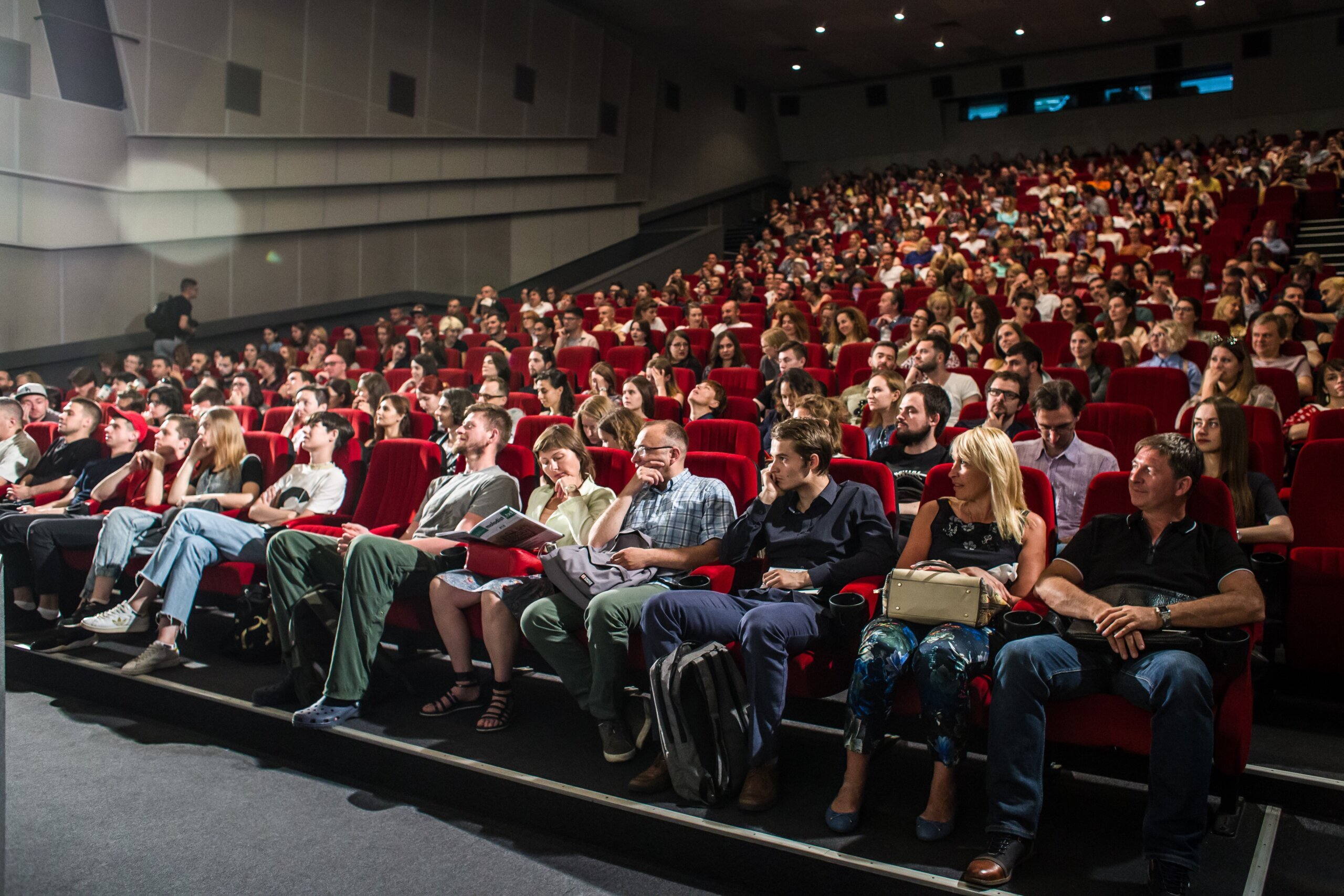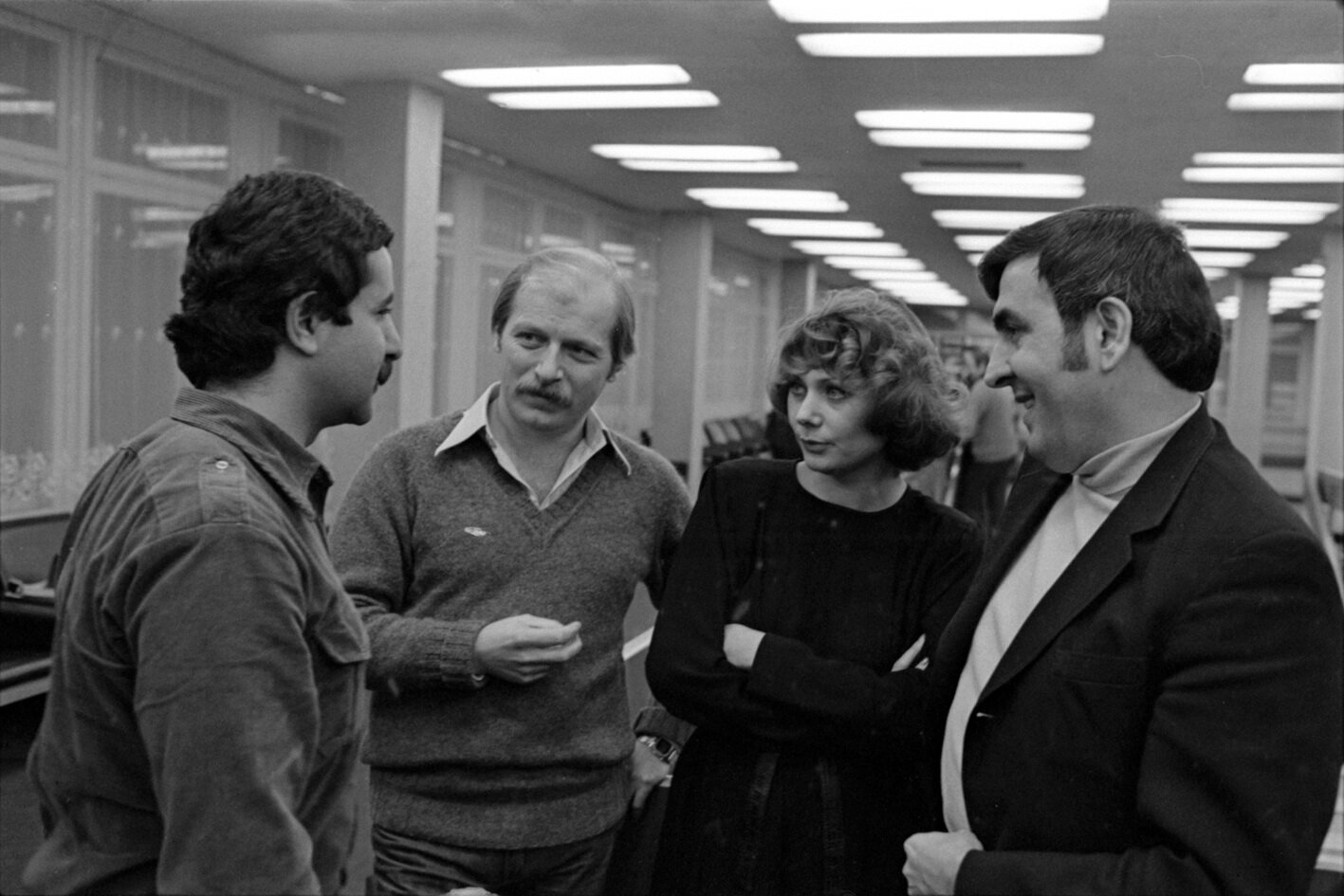Molodist is not just Ukraine’s oldest film festival. It has been breaking cinematic ground for 50 years, and its influence extends far beyond Ukrainian borders.
By supporting rising filmmakers, Molodist Kyiv International Film Festival, whose name means “youth” in Ukrainian, shone the spotlight on many talents, who would later be recognized by the whole world — from Oscar-winning Belgian director Alain Berliner to British director Danny Boyle, the creator of “Trainspotting.”
“Molodist is the most important festival of debut film in the world,” Ukrainian film critic Oleksandr Gusev told the Kyiv Post. “Through the years, this festival has been introducing young filmmakers and young viewers to the pearls of the cinema world.”
At this year’s annual screening, Molodist will continue promoting fresh and experimental films, touching on modern society’s sore subjects and giving a platform for taboo topics.
The festival will kick off on May 29 in Kyiv and run through June 6 with screenings of nearly 200 films accompanied by English and Ukrainian subtitles.
Revolutionary event
The history of Molodist traces back to Soviet Ukraine, when in 1970, a group of enthusiasts from the Kyiv State Institute of Theatrical Arts founded a festival for students to present their first cinematic pieces.
The first Molodist featured films shot in 1965–1970 by students of the cinematography faculty but it soon made a buzz throughout all of Ukraine and other Soviet countries, becoming a cross-border platform for young directors.
“Filmmakers from all around the Soviet Union were coming to us,” Andriy Khalpakhchi, the head of Molodist since 1992, told the Kyiv Post.
It was the time when all spheres, cinema included, were under the sway of the Soviet authorities. But Molodist resisted spreading the regime’s propaganda and spotlighted films that were different.
The 1979 festival’s winner, drama “Babylon XX” by legendary Ukrainian filmmaker and actor Ivan Mykolaichuk was one of such pieces. The film portrays how a small Ukrainian village resists the revolutionary Red Army.
Mykolaichuk, who directed and also played the main role in the film, was highly criticized by Soviet authorities and yet it didn’t stop Molodist from giving him its highest award.
“The festival made it possible to take a step towards the freedom of thought and communication, something that was not typical for the Soviet Union,” Khalpakhchi says.
As an acknowledgment of Mykolaichuk’s contribution and talent, his “Babylon XX” will open the 50th edition of the festival.
The 1991 collapse of the Soviet Union brought freedom not just to Ukraine but to Molodist as well. Soon after independence, the festival embarked on the journey of becoming an international event, which it achieved in 1993. Filmmakers from all around the globe started sending their applications to participate in the festival.
In Ukraine, meanwhile, Molodist quickly became a hit among cinephiles as one of few events at the time bringing new rare films to the screen. According to Khalpakhchi, the screenings were so popular that people were breaking windows of Kyiv’s Cinema House, trying to get to the festival by any means.
“The whole world was interested in the newly independent country and that helped us a lot. We have become the signature piece of Ukraine in the cultural world,” Khalpakhchi says.
Progressiveness engine
Achieving international status didn’t turn Molodist conservative. The festival continued to develop, pushing itself and the local community towards a new level of progressiveness.
One of its boldest decisions was launching “Sunny Bunny,” a program specializing in LGBTQ-related films, in 2001.
Khalpakhchi says he was inspired by the Teddy Award of the Berlin International Film Festival, celebrating cinema about the LGBTQ community since 1987. He says he was amazed to see people of all ages as well as families with kids watching movies about LGBTQ people, which were highly stigmatized in Ukraine at that time. He thought his festival had to do something similar.
Molodist eventually became the second film festival in Europe to introduce a program of LGBTQ-themed movies. Years after Molodist started “Sunny Bunny,” renowned events like the Venice Film Festival and Cannes Film Festival followed suit by launching similar awards.
Although Molodist was criticized by the highly conservative post-Soviet Ukrainian society for “promoting homosexuality,” and was sometimes even attacked by far-right activists, the festival never gave up on its goal to make Ukraine more tolerant.
“We were breaking the traditions of the Soviet society,” Khalpakhchi says.

People attend a film screening during the 47th Molodist Kyiv International Film Festival in 2018. (Molodist KIFF)
According to Khalpakhchi, the films featured in the “Sunny Bunny” program are not simple romantic stories, but crucial pieces raising issues like the one of acceptance.
Award-winning Swedish drama “Something Must Break,” which portrays a complicated relationship between a straight man and an androgynous person, was the “Sunny Bunny” winner in 2015. This year’s “Sunny Bunny” competition offers a selection of 10 films from Israel, Germany, Brazil, Canada, the U.S. and more.
According to Hlib Rodchenkov, deputy director-general of Molodist, “Sunny Bunny” is now the most popular program among the festival’s audience, proving the progress Ukrainians achieved over the years.
“Cinema is like a litmus test of what is happening in society. It always answers sharp questions or asks sharp questions,” Rodchenkov told the Kyiv Post.
Apart from “Sunny Bunny,” Molodist gives a platform to other crucial social and personal issues through its other programs: The “Midnight Special” is all about sexual exploration, while “Teen Screen” addresses the challenges of adolescence.
“The festival is the engine of progressive thought in Ukraine,” Rodchenkov says.
Building community
Throughout the years, Molodist welcomed numerous beginner filmmakers who would later reach global acclaim. They include German Tom Tykwer and Fred Kelemen, British Stephen Daldry, French Francois Ozon and Bruno Dumont, the winner of the Palme d’Or at the Cannes Film Festival.
“(Without Molodist) world cinema would have been a little bit poorer, and Ukrainian viewer would have definitely been poorer,” Yaroslav Pidgora-Gviazdovsky, a Ukrainian film critic, told the Kyiv Post.

Legendary Italian actress Sophia Loren (L), Andriy Khalpakhchi, the head of Molodist Kyiv International Film Festival (R), speak with the media during the 33rd annual edition of the festival in October 2003. Loren is one of the many global film celebrities that attended Ukraine’s oldest film festival, Molodist, which celebrates 50 years in 2021. (Molodist KIFF)
Molodist have also been building bridges between Ukrainian film enthusiasts and the global cinema community. From Italian actress Sophia Loren to French actor Gerard Depardieu, many cinema celebrities have visited Kyiv at Molidist’s invitation to present works, speak at discussions or simply make appearances.
This year, the festival will hold an exhibition honoring iconic Italian filmmaker Federico Fellini. His niece, Francesca Fabbri Fellini, is expected to attend the opening on June 4.
As the festival has passionately promoted the art of cinema, it has built a whole community of cinephiles.
Around 50,000 people visited Molodist last year, despite the pandemic. This year, the organizers expect an even bigger audience, having expanded the number of festival locations to be able to welcome all who want to join.
For many, Molodist has become a starting point to grow their appreciation for underground cinema. One of them is Kyiv lawyer Bogdan Kozar, 29, who has been visiting Molodist since 2013 and plans to volunteer at the event this year.
“Molodist is the only event in Ukraine that provides viewers with the opportunity to see such a large number of relevant and quality films,” Kozar said. “And it unites the local audience with the spectators of the festival from all over the world.”


